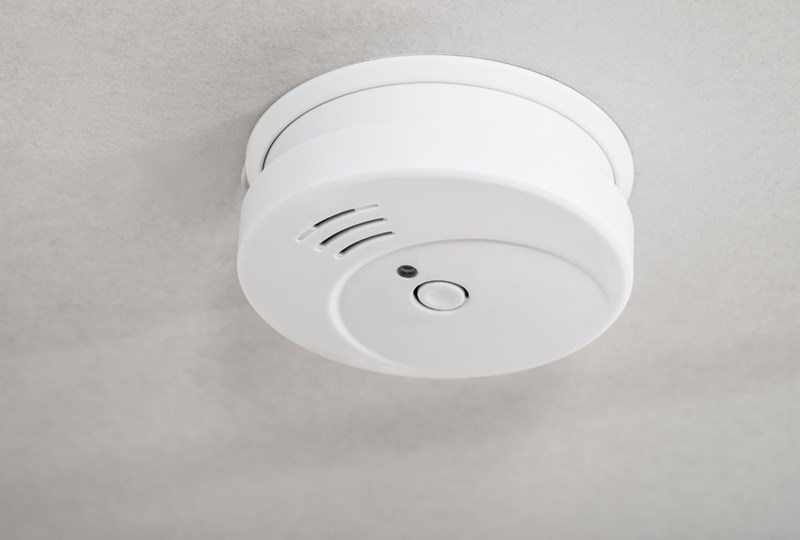
Whether you just bought a new home or want to increase the safety of your long-term residence, here are nine insights you can use to fireproof your home on the inside and out.
1. Install or check smoke detectors
Before you check for fire hazards, be sure to test the batteries and efficacy of your smoke detectors. Set a calendar alert to re-check the detectors monthly.
2. Replace aging fire extinguishers
Have you had the same fire extinguisher for decades? According to one pro, you can check its functionality by testing the pressure gauge. If the needle stays in the green area, the fire extinguisher still works. If your extinguisher doesn’t have a pressure gauge (many older models won’t), the most cost-effective option is to replace it for about $50.
Be sure to keep an extinguisher on each level of your home and another in your garage so you can access it quickly during a fire emergency.
3. Fireproof your grill and outdoor dining area
In our dry summer months, it can be especially easy for a fire to start from a barbecue or backyard grill. Be sure your grill is placed away from trees or shrubs and cut down overhanging branches to reduce your backyard fire risk.
When purchasing outdoor furniture, look at the labels carefully. Most new patio furniture will be fire-resistant, but you may have to apply a flame retardant to older furniture.
4. Remove debris from gutters and roof areas
If embers enter your overflowing gutters, a fire can break out easily — especially in dry conditions. Be sure to remove all debris from your gutters, roof, eaves and downspouts.
5. Install fire-resistant carpeting and area rugs
Carpets and rugs made of wool or synthetic materials can spread fire quickly, but fire-resistant carpets now exist in a variety of textures, colors and patterns. If you’re replacing your carpets or rugs, consider buying those made from these safer materials. Pay special attention to the material of hearth rugs or other flooring coverings that will be near a working fireplace.
6. Double-check electrical wiring
When adding in a new device or appliance, be careful not to overload your wiring. If you have older appliances that you haven’t looked at in recent months, move them from the wall to be sure the wiring isn’t frayed.
If you aren’t sure what to look for, hire a professional electrician who can assess your wiring for a small fee.
7. Replace your furnace filter
To minimize your fire risk, it’s critical that you replace your furnace filter regularly. A clogged filter can cause a furnace to overheat and catch on fire.
8. Clean your dryer’s lint trap
Your lint trap is another filter that can overheat and cause an eventual fire. Make it a habit to clean out your lint trap each time you use your dryer, and teach your children to do the same.
9. Replace old-school candles
According to the National Fire Protection Association, candles cause three percent of home fires, and that risk rises around the holidays. If you use candles to fragrance your home, try swapping out your candles for scent diffusers, which don't require an open flame. If you’re all about candle ambiance, consider battery-operated candles instead.
One last tip
Taking these precautions should help ease your mind about a potential house fire, but it’s important to make a plan should a fire occur. Determine a place away from your home where every member of your family should meet, and reinforce this meeting place so there is no confusion about where to go in case of a house fire.








